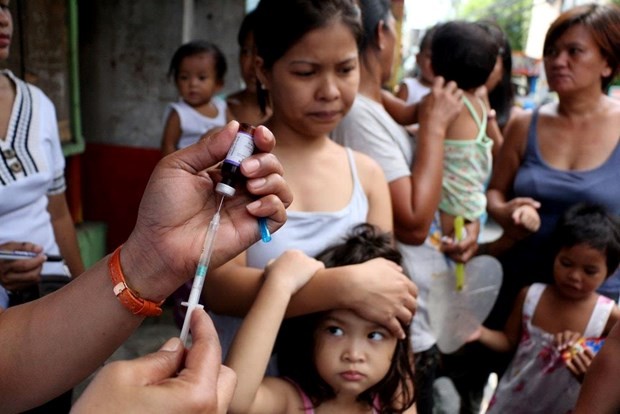
Philippine Health Secretary Francisco Duque said that the department has declared the “re-emergence of polio” after it found the disease in a 3-year-old child in the southern province of Lanao del Sur province, and another suspected case of disease which is awaiting confirmation.
Duque said the re-emergence of polio was brought about by low immunisation coverage for polio, poor environmental sanitation and hygiene and low disease surveillance.
He said the department, in close coordination with local government units and concerned national agencies, and with the support of the WHO, the United Nations Children's Fund (UNICEF), and other partners, "is preparing a rapid response to the polio outbreak."
This includes a series of synchronised oral polio vaccinations to protect every child under the age of five in areas at risk beginning in October 2019, Duque said.
Aside from immunisation, Duque also reminded the public "to practice good personal hygiene, wash their hands regularly, use toilets, drink safe water, and cook food thoroughly."
Polio is an infectious disease which spreads rapidly. It can cause paralysis and, on rare occasions, can be fatal. There is no cure for polio. However, it can only be prevented with multiple doses of polio vaccines that have long been proven safe and effective.
Polio is spread when the stool of an infected person is introduced into the mouth of another person through contaminated water or food.
























